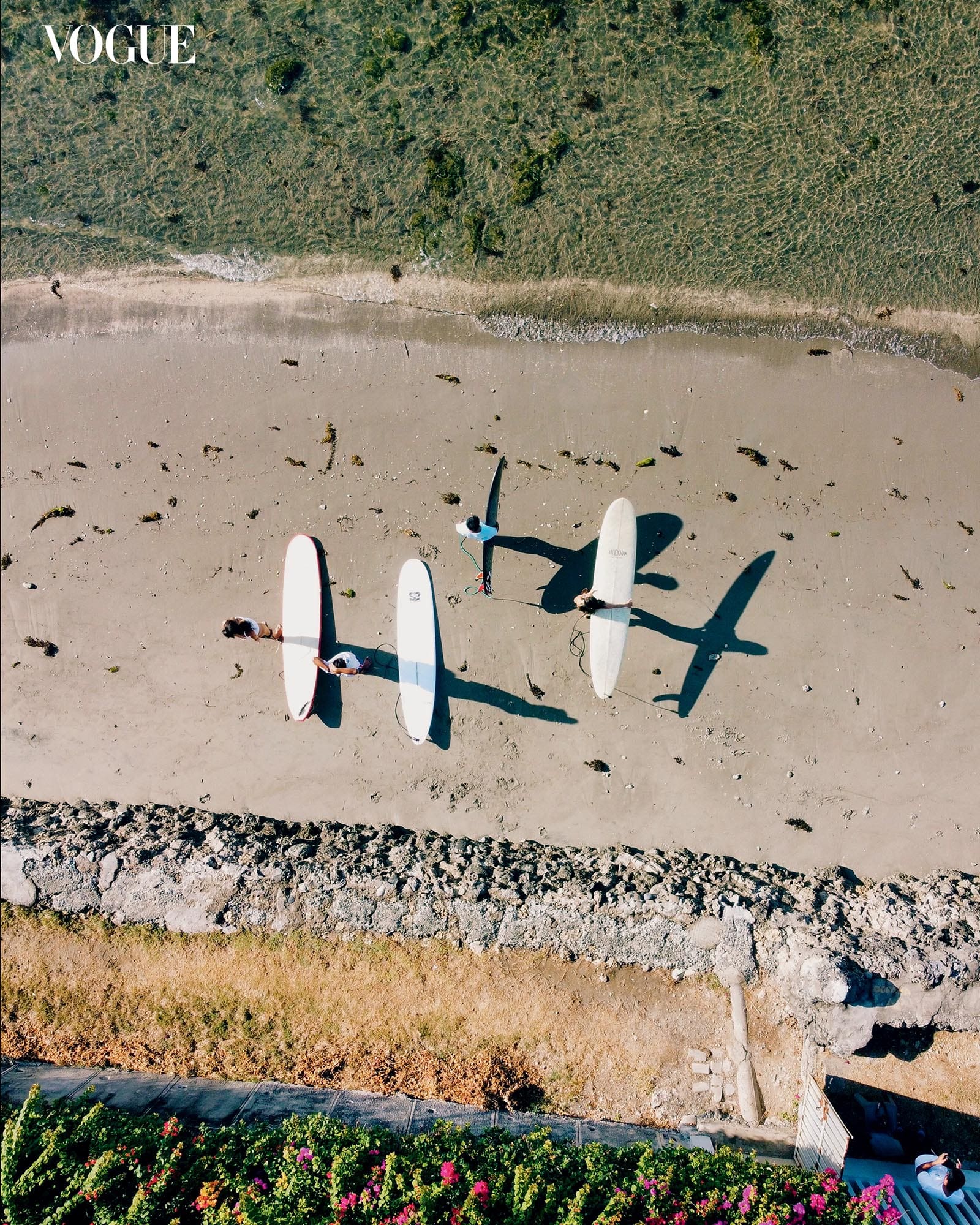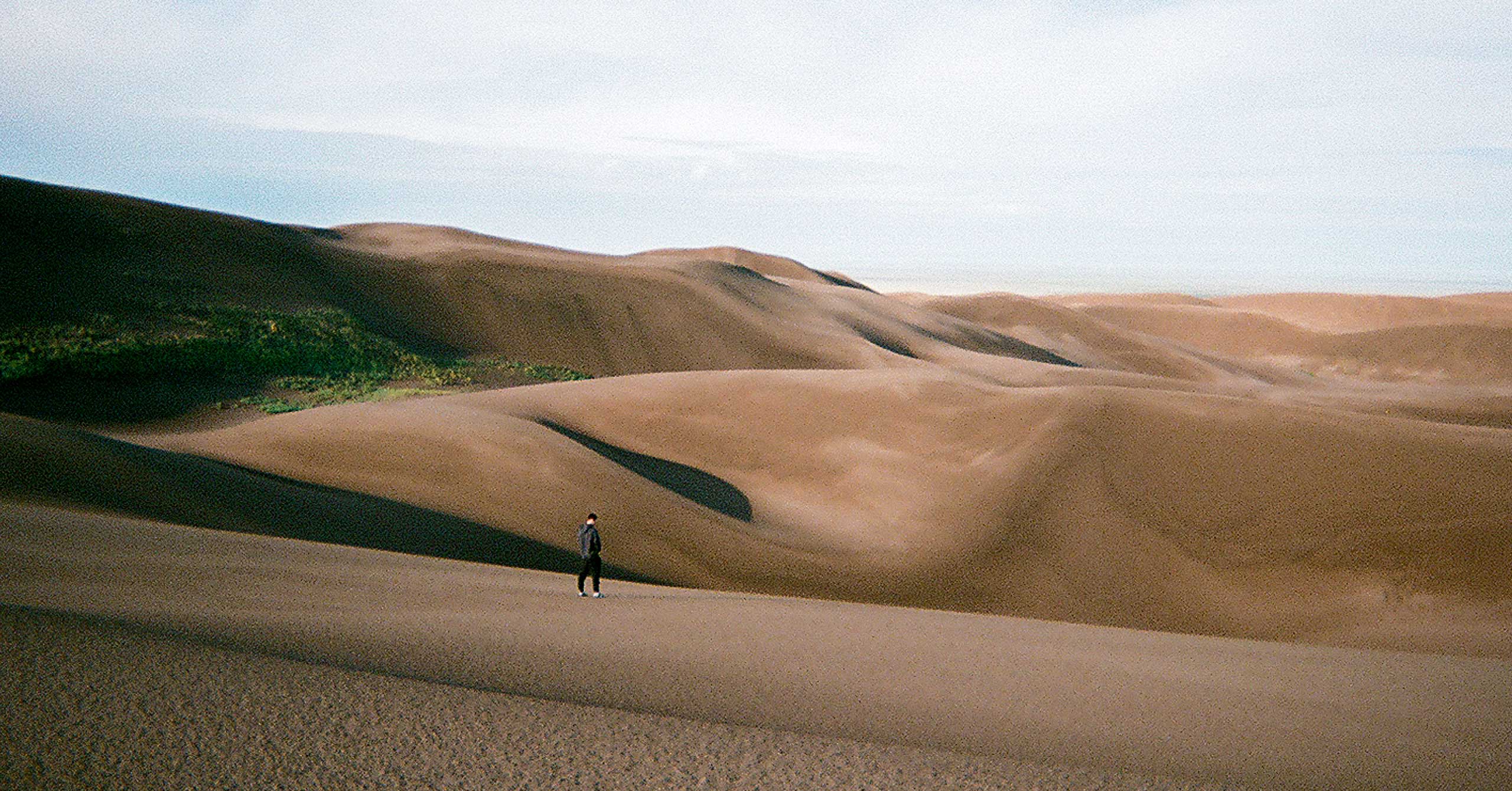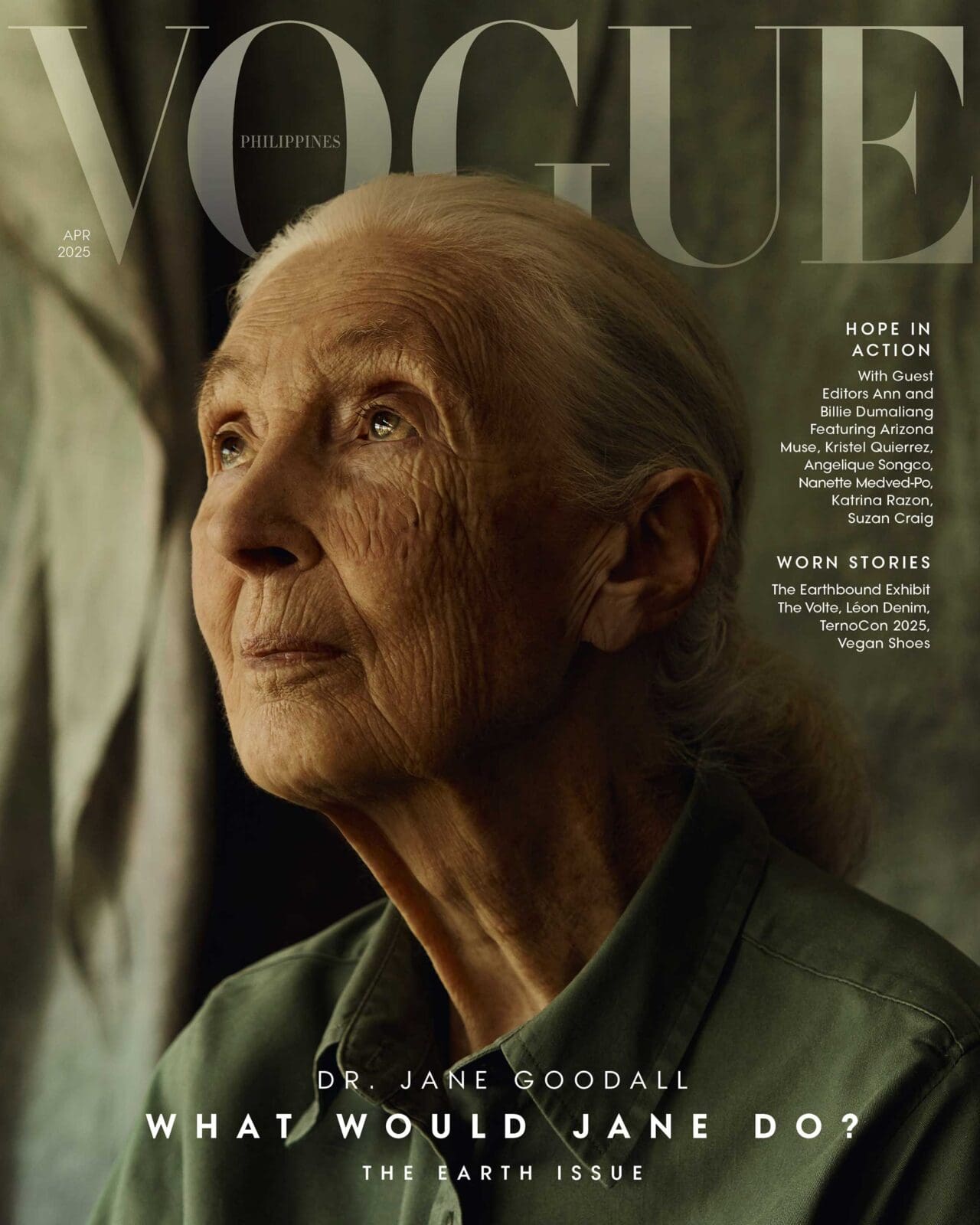Photographed by Frankie Stolcke for the April 2025 Issue of Vogue Philippines
Photographed by Jan Deo-Duarte for the April 2025 Issue of Vogue Philippines
How do we keep thinking about growth in a world that is bursting at the seams?
I feel like it’s fashion week all the time.”
It’s a running joke I usually hear from friends outside fashion. It’s true, between menswear, womenswear, couture, resort, and pre-collections, fashion weeks pass by in a blur, often bleeding into each other. “Bring me something fresh,” goes the usual directive. “We want to see something new.” Reinvention is the industry’s heartbeat, the fire that keeps the whole machinery going.
How do we keep thinking of growth, both personal and collective, in a world that seems to be bursting at the seams? We are told to flourish, but why does every step forward feel like sinking deeper into something we cannot escape? How do we reconcile our aspirations with communal responsibility?
This seems to be a pressing concern and overarching theme during the Global Fashion Summit held at Copenhagen, Denmark. The facts presented were sobering: we now produce twice as many clothes compared to only a decade ago, and a staggering 80 percent remain unworn; pieces untouched, moving from shop floors to outlets and eventually to the dreaded landfills. Overproduction assures healthier margins, exponential expansion, positive figures! Across the board! But at what price?
Anthropocentrism is the belief that human welfare and development, whether industrial, economic, creative, or sentimental, sit at the center of everything. On paper, it doesn’t sound so bad. But couple this with the rise of neoliberalism and the downfalls of this ideology become clear. Humanity triumphs, but at the cost of everything else: the ecosystem, the flora and fauna that comprises it, our planet.
“Don’t ask me what gives me hope. Ask me what gives me energy, what gives me motivation. It’s the belief that the existential problems we have were created by human hands and it’s our responsibility to solve them.”
Advertisement
Fashion, like many other fields, has thrived on the belief that growth is an inherently positive force. But it seems this view could be deeply flawed. If we measure success only in terms of expansion, we lose out on the finer details: environmental collapse, resource depletion, and the erasure of slower, more meaningful ways of making and wearing clothes.
“Empathy, compassion, humility, and humanity. These are the words to describe the leaders of the future,” asserts Paul Polman, global sustainability advocate and author of Net Positive: How Courageous Companies Thrive By Giving More Than They Take. Perhaps here is the biggest design challenge of our time, and it goes from the top down. While change must come from every level, we need conscious leaders in executive positions, steering the machine toward meaningful transformation.
Patagonia; the brand that has always embraced its outsider status, has long been touted as the poster child of sustainable fashion. Its management readily claims distance: “Fashion is none of our business.” On his panel talk during the summit, CEO Ryan Gellert expounds, “At our heart, what we are is a committed experiment doing business differently that makes quality products for outdoor activities and storytellers.”
Since Yvon Chouinard founded the company with a few adventurous friends in 1976, it has consistently defied industry norms: Patagonia has never worked with any fashion brands, nor does it work with personalities or have advertising placements in any glossy magazines.
Long before sustainability became a buzzword, Patagonia was pioneering environmental initiatives. It began investing in regenerative agriculture to restore soil health and launched the Worn Wear program to encourage customers to repair and reuse their gear instead of buying new. The company has also been vocal about greenwashing, challenging the fashion industry to move beyond superficial sustainability claims.

Patagonia isn’t afraid to take bold stances, even at the risk of backlash. In 1990, a donation to Planned Parenthood led to customer boycotts, but the company doubled down with even more support. It has championed environmental activism, supporting grassroots movements and suing the U.S. government to protect public lands. Patagonia’s commitment to purpose over profit is also evident in its anti-Black Friday campaigns, like the 2011 New York Times ad that urged consumers: “Don’t buy this jacket.”
The use of more responsible materials, pushing a fairtrade premium to ensure that partners in the supply chain earn a secure livable wage, sharing R&D breakthroughs to an accessible open source, foregoing personal profits to finance projects that put the sustainable ticket forward. What if this became the industry standard, rather than a rare outlier?
For those of us building something; a brand, a vision, a life, this shift in perspective is vital. Flourishing doesn’t have to mean constant expansion. There are many ways to grow; surely some value depth over speed, care over consumption, intention over impulse. “Don’t ask me what gives me hope,” challenges Gellert. “Ask me what gives me energy, what gives me motivation. It’s the belief that the existential problems we have were created by human hands and it’s our responsibility to solve them. The window of time for pessimism is behind us.” By staying true to its values, Patagonia continues to lead by example, challenging both the fashion industry and its customers to rethink consumption and sustainability.
So the next time you’re in a Paris hotel room, you’re finally packing your bags at the end of a long fashion month. You’ve rushed from show to show, seeing so many beautiful things, and yet can’t remember much of them. Your work computer pings from the far side of the bed: someone from the New York office already talking about the next season. Try to tell yourself, this time with a little more conviction: something really, really has to change.

